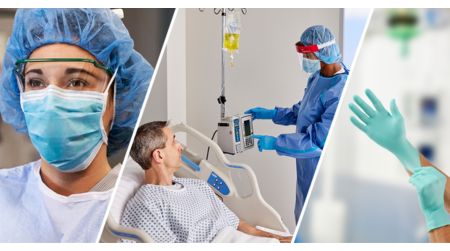March 27, 2025- Personal Protective Equipment (PPE) is crucial in healthcare, helping safeguard care providers and patients from infections, hazardous drugs, bloodborne pathogens and occupational exposures across care settings, according to Cardinal Health. Healthcare-associated infections, in particular, can lead to illnesses, antibiotic resistance, and even death. In fact, about 99,000 people die each year from healthcare-associated infections in American hospitals, according to the Centers for Disease Control and Prevention (CDC). Such infections can increase hospital stays by 12 days for patients with one infection and up to 25 days for patients with multiple infections, based on a journal article published on the National Library of Medicine website.
Within the healthcare industry, PPE is a broad category of commonly used garments such as gloves, masks, gowns and more – all worn by providers when treating their patients. Industry standards, including those set by the American Society for Testing and Materials (ASTM) and the Association for the Advancement of Medical Instrumentation (AAMI), provide critical guidelines to help ensure the safe and effective production, distribution and use of these products.
